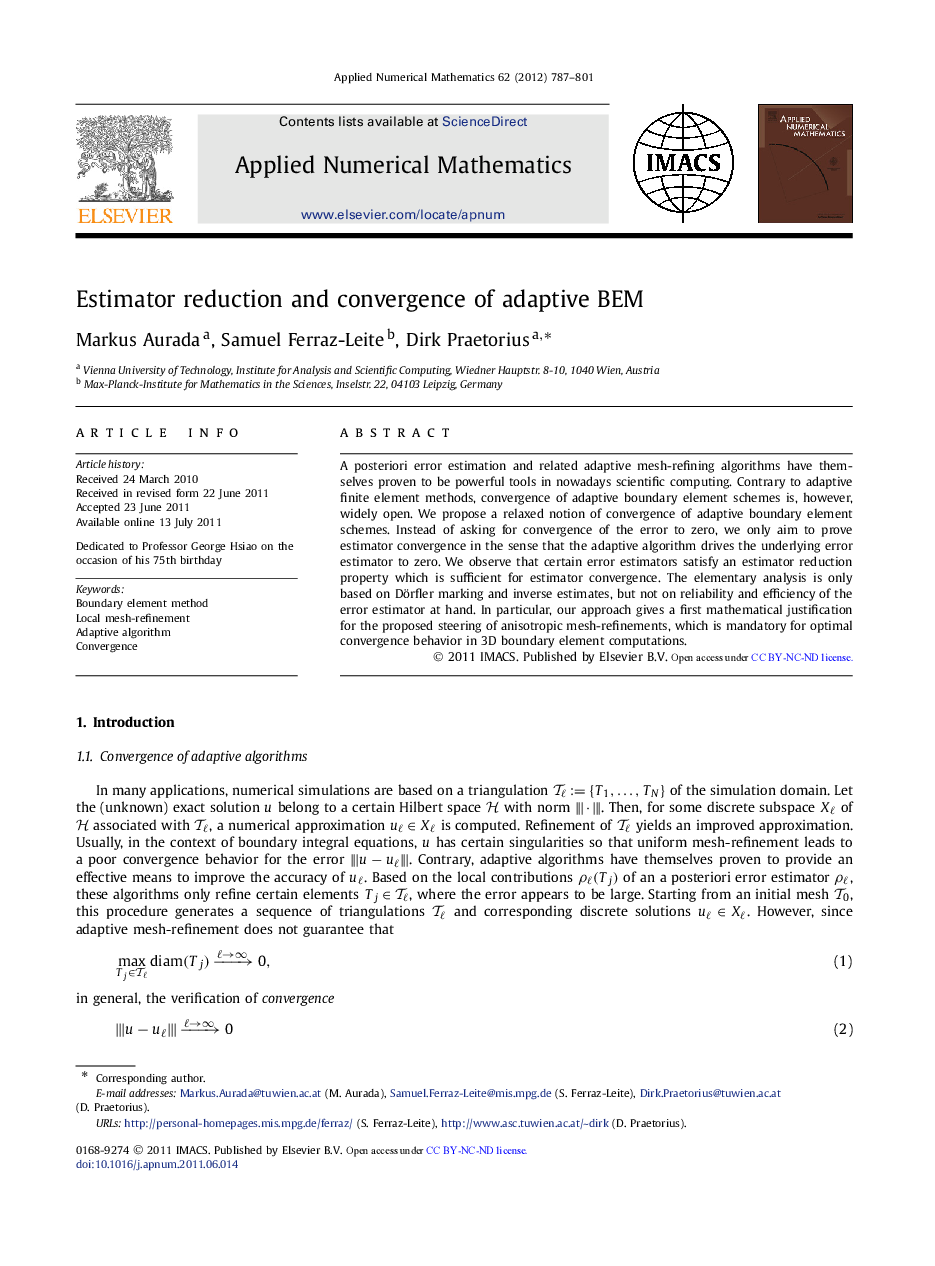| Article ID | Journal | Published Year | Pages | File Type |
|---|---|---|---|---|
| 6423243 | Applied Numerical Mathematics | 2012 | 15 Pages |
A posteriori error estimation and related adaptive mesh-refining algorithms have themselves proven to be powerful tools in nowadays scientific computing. Contrary to adaptive finite element methods, convergence of adaptive boundary element schemes is, however, widely open. We propose a relaxed notion of convergence of adaptive boundary element schemes. Instead of asking for convergence of the error to zero, we only aim to prove estimator convergence in the sense that the adaptive algorithm drives the underlying error estimator to zero. We observe that certain error estimators satisfy an estimator reduction property which is sufficient for estimator convergence. The elementary analysis is only based on Dörfler marking and inverse estimates, but not on reliability and efficiency of the error estimator at hand. In particular, our approach gives a first mathematical justification for the proposed steering of anisotropic mesh-refinements, which is mandatory for optimal convergence behavior in 3D boundary element computations.
